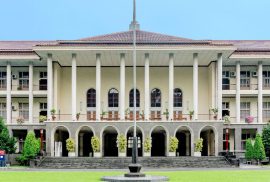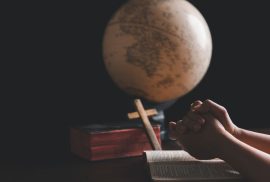Athanasia Safitri
Indonesia has seen ups and downs due to various conflicts and threats to peace from the colonial era, post-independence, and now during the era of democracy. The experiences have shown the connections between the development of democracy, peacebuilding initiatives, and conflict resolution decisions. The reflections that take place afterward inevitably come with multidisciplinary and intersectional approaches in the hope of the realization of a better democracy for Indonesia.
A national seminar titled “Conflict Resolution and Peace Experiences in the Context of Indonesia’s Future Democracy” was held on November 28, 2024, to address the issue. It is a forum for exchanging experiences, learning from best practices, and developing strategic goals in Indonesian democracy, peacebuilding, and conflict resolution. It is a component of UGM’s 75th Anniversary and 15th Lustrum events which touch several fields including those in relation to conflicts violating freedom of religion or belief (FoRB).










